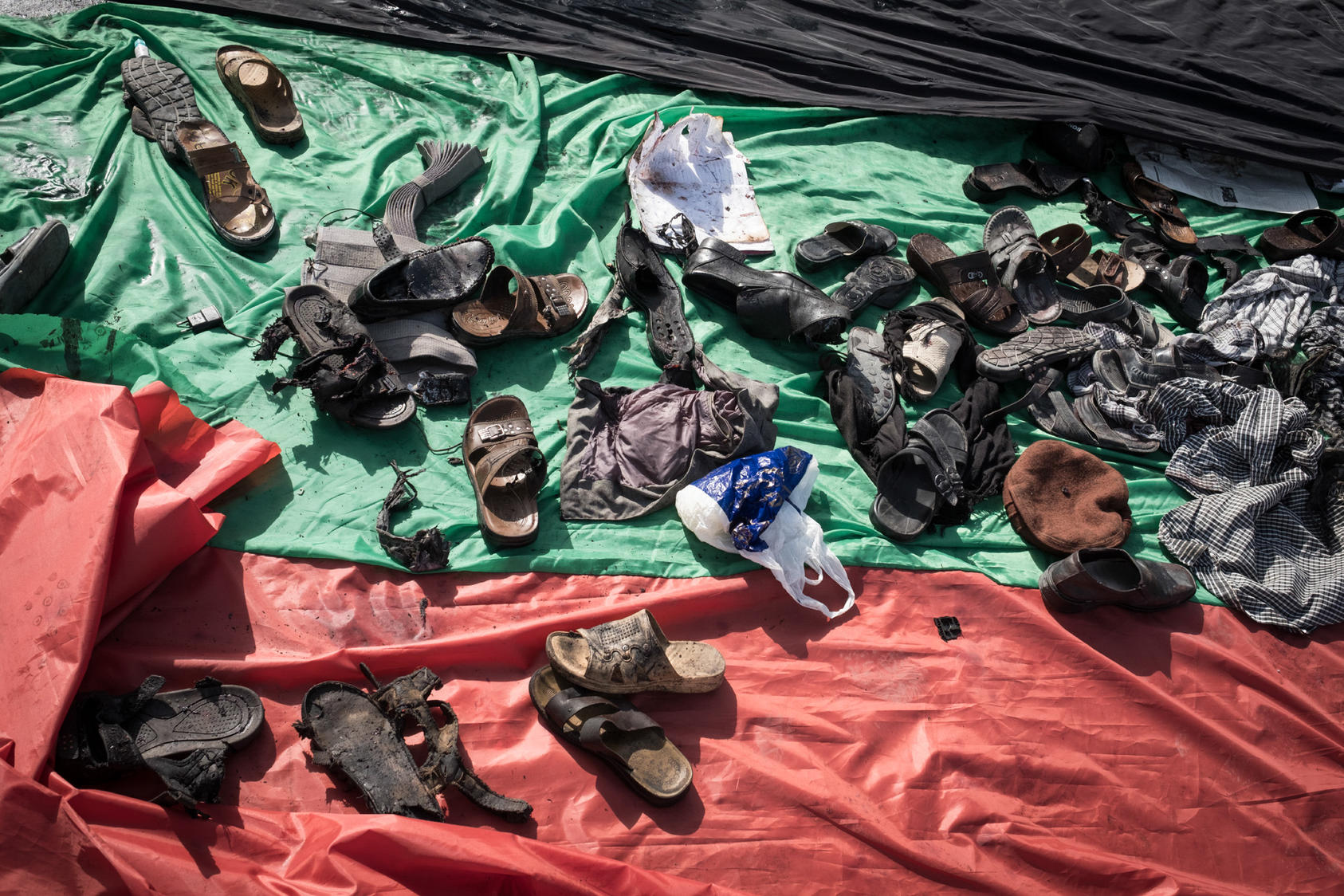South Asia: Rising Extremism Opens Way for ISIS
How the Region and the U.S. Can Help Turn the Tide
Across South Asia, complex strains of extremism are opening the way for the Islamic State and destabilizing governments. From elements in the Afghan Taliban to the ascent of Hindu nationalism in India, extremists are drawing the region deeper into volatile internal and external conflicts, according to experts on religion and extremism speaking recently at the U.S. Institute of Peace. There are no quick ways to reverse the trend, they said. But steps that could slow radicalization include bolstering free speech, attacking terrorists’ financial networks and undermining the myth that a long-ago caliphate ruled over a perfect society.

The spread of the Islamic State is triggering particular concern. The extremist group is taking advantage of the “tumultuous mix” across South Asia to put down roots and attract new fighters to inflame the region, said Farid Senzai, the president of the Center for Global Policy (CGP), a research organization focused on issues in Muslim societies. CGP co-hosted the discussion at USIP.
ISIS militants and commanders are beginning to appear in Afghanistan as it loses territory in Iraq and Syria, said Scott Worden, the director of USIP’s Afghanistan and Central Asia programs. In Bangladesh, extremist ideologies are taking hold among educated youth connecting with ISIS, according to Kamran Bohkari, the director of political affairs at CGP.
“There is a nexus between these local and transnational groups,” said Ali Mohammad Ali, a senior fellow at CGP. He sees al-Qaida as the most significant regional threat. “The transnationals can’t survive and work in Afghanistan alone. So how can we can divorce the local groups from the international ones, so we can speak of a political settlement and a possible peace in the future?”
The panelists agreed that the U.S. has limited capacity to staunch the spread of extremist ideologies and that the prime responsibility lies with the region’s governments. States that use religion to promote national identity must face up to the fact that it puts them in a losing competition with religiously based extremists, Bohkari said.
The U.S. has limited capacity to staunch the spread of extremist ideologies.
India’s ruling Hindu nationalist Bharatiya Janata Party may not have intended to set off vigilante crackdowns on the sale of Pakistani-made garments, for instance, but its ideology inflamed part of its base that it can’t reject. That, in turn, feeds the narrative of Islamist extremists regarding Hindus. Still, governments must tread cautiously around social and religious issues important to ultra-conservatives, to avoid pushing them into the camp of politicized extremists, Bohkari said.
'The Myth of the Caliphate'
While trends of extremism in the region are not promising, the panelists suggested ways to reduce the appeal of radical ideas:
Support free speech. Governments that seek to oppose extremism should make it a priority to allow and protect speech. Generating debate within each country will allow for a “healthy discourse” and help to disrupt extremist narratives, Bokhari said. He acknowledged the inevitable tension between cracking down on hate speech while supporting open debate.
Disrupt terrorists’ financial networks. Many extremist groups in Afghanistan live comfortably on the proceeds of illegal activities—drug-trafficking, kidnapping, mining precious stones—and operate businesses in Persian Gulf countries, said Ali. With many millions of dollars in revenue, they have little incentive to discuss peace and reconciliation, yet for 15 years the economics of the insurgency hasn’t been addressed, he said. The international community needs to move forcefully to cut off funds that have supported the Taliban and now ISIS.
Undermine the myth of the caliphate. South Asian Muslims on the subcontinent have harbored a romantic illusion of life under a caliphate since the fall of the Ottoman Empire, said Iman Malik, a counterterrorism expert who consults for the World Bank Group and the U.S. government. It’s a utopian fantasy that bolsters recruitment and support for ISIS. Malik is researching what can be done to counter the myth.
Learn lessons from Indonesia. In part because of Islamic education that stresses tolerance, Indonesia mostly manages its religious diversity well, said Susan Hayward, a USIP senior advisor for religion and inclusive societies. With a population that’s 88 percent Muslim, the country has created some legal frameworks that protect religious freedoms, accompanied by Islamic narratives that even celebrate its array of religions. The level of extremist activity in Indonesia is relatively low and its religious culture offers a model for other Islamic nations seeking to mix politics and religion while excluding extremism, Bokhari said.
Promote critical thinking. One positive development in South Asia is a growing willingness to question conservative traditions that help fuel extremism, Malik said. Such challenges arise in policy circles from judges and courageous politicians, or culturally from star entertainers and individuals standing up against unjust conditions. Military, political and intelligence officials “must realize that the process of questioning is irreversible,” she said.



